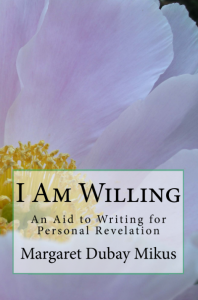
I Am Willing: An Aid to Writing for Personal Revelation
Big news! I will just blurt it out. I just released my latest project: a guided journal based on my poem. “I Am Willing” (from my book, As Easy as Breathing)! This has been in the works for years and I will post more of the stories later. For now, a huge thank you to Anne Schneider (from the International Women’s Writing Guild) who contacted me in April to ask about using the poem in a women’s writing group. Her request got me moving…again.
Here is the brand new link to I Am Willing: An Aid to Writing for Personal Revelation
BOOK DESCRIPTION:
I used my poems as writing prompts when I taught my Expanding Our Possibilities ™ workshop series. To continue supporting writing for healing and personal growth, I created this lovely guided journal based on my poem, “I Am Willing.” The poem has been shared by blogs all over the world. This volume is for you to write, expressing and exploring your dreams and challenges, your hopes and fears. Ideal to use on your own or in a group setting, it also makes a thoughtful gift for someone in the midst of life changes.
The complete poem, from my book, As Easy as Breathing, is included at the start with a brief introduction. A stanza of the poem tops each writing page with ample space for your reflections and revelations. Use this guide however seems right to you. You may begin with the first verse and sequentially work through the poem, or you might open to any line that speaks to you right then. In preparation you can sit quietly, deeply breathing for a few minutes, or read the lines aloud. To get your pen moving you could copy the lines at the top of the page or dive directly into your own writing. Be patient. Trust. Be kind to yourself. Poetry or prose, let the words flow, no concerns about spelling or punctuation. Right now this is for you. Later you can decide if you want to share any of these insights. There is no right way, only what you choose, what feels right in the moment. Write, draw, color, decorate with stickers if you like. Make this books your own. Now begin…
6in by 9in, 70 pages, lined for writing. Check out the cool back cover on Amazon.
This poem has traveled all over the world. More stories to come. Please share.
I Am Willing
I am willing
to change what doesn’t work
for me in my life.
I am willing to listen
with an open heart,
without judging.
I am willing to plant seeds
that take a long time,
if ever, to grow.
I am willing to feel
and let go.
I am willing to make mistakes
and learn from them.
I am willing
to live in the present.
I am willing to forgive
and forget in my heart.
I am willing to love as much
as my endless spirit will allow.
I am willing to be seen
in all my radiance.
I am willing to be fearless.
I am willing to be powerful.
I am willing to be peaceful.
I am willing to stand tall
and walk gracefully.
I am willing to sing with my stunning, full voice.
I am willing to allow.
I am willing to let go.
I am willing to change.
I am willing to see
and be seen.
I am willing to hear
and be heard.
I am willing to feel
and be felt.
I am willing to heal
and be healed.
I am willing to love
and be loved.
I am willing
to be fully human.
Margaret Dubay Mikus
© 1996
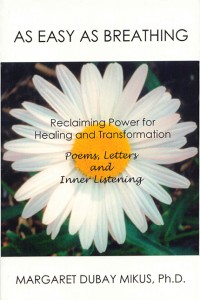
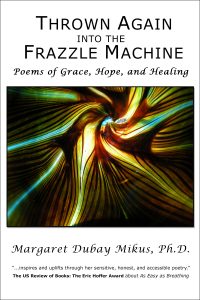
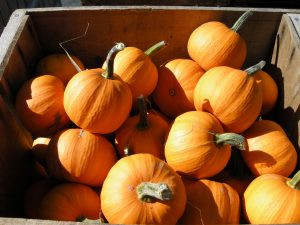
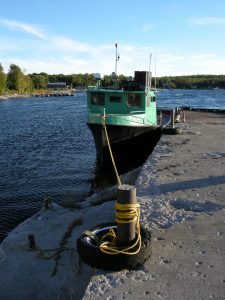

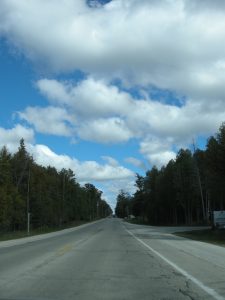
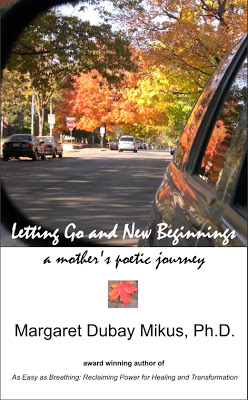 FIVE STAR REVIEW:
FIVE STAR REVIEW: